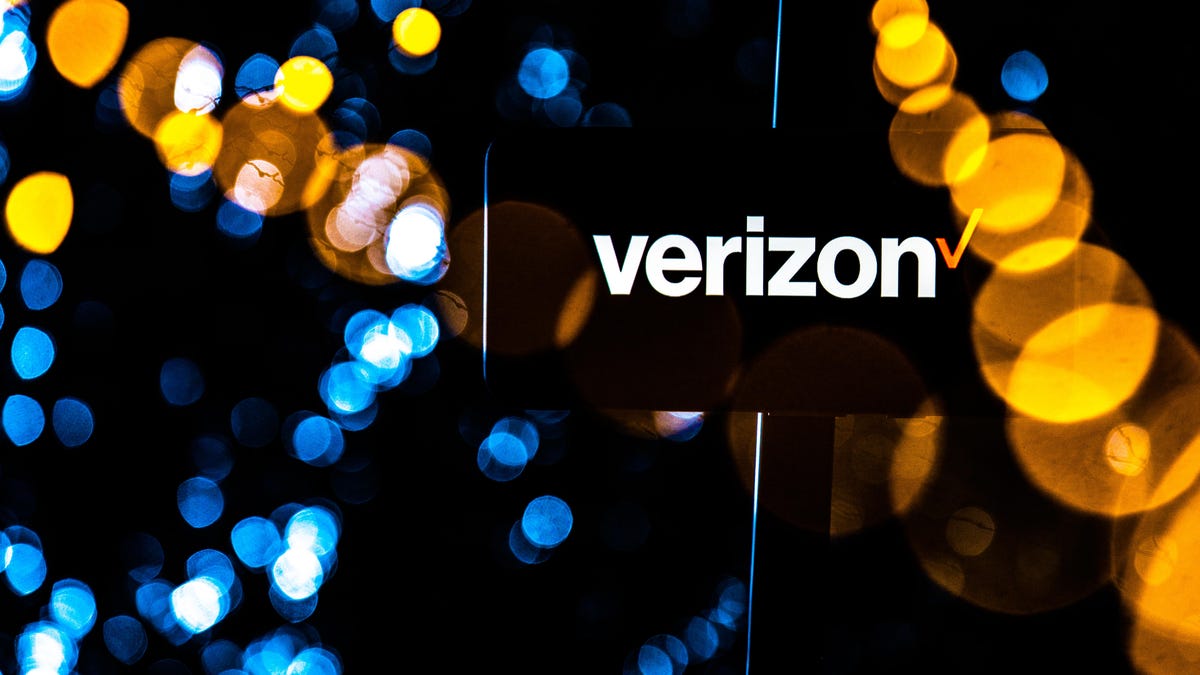Verizon CEO promises 'real 5g' to counter T-Mobile skepticism
Hans Vestberg says Verizon will have 5G widely available when it's needed.

Verizon beats expectations for new subscriptions.
Verizon's CEO Hans Vestberg threw a few punches of his own Thursday in the 5G marketing wars. Responding to jabs from T-Mobile CTO Neville Ray, Vestberg told investors on the company's quarterly conference call that his company will have "real 5G" that gives "the right sort of performance" that customers expect from Verizon in the "right moment."
The comments come a day after Ray, in a tweet, expressed skepticism about Verizon's plans to add more cities to its 5G network. Ray said he wanted to see the coverage map in those cities, implying that the airwaves Verizon is using in its 5G deployment won't offer the kind of coverage that T-Mobile says it plans to offer itself.
Verizon announced Wednesday that it's added Atlanta, Detroit, Indianapolis and Washington, DC to its list of cities with 5G. The company already offered 5G in parts of Chicago, Denver, Minneapolis-St. Paul and Providence.
T-Mobile, Sprint and AT&T also have 5G service available in some parts of the US.
Ray's criticism of the Verizon network is based on Verizon focusing its early deployments on very high-frequency millimeter wave spectrum, or mmWave. This spectrum can transmit vast amounts of data, but the range of the signal is very short, requiring a lot more small cell towers to be deployed to cover a given area. Over a year ago, Ray called Verizon's plan to use mmWave "unrealistic" because it would be way too expensive for the company to blanket the US with 5G using this spectrum.
Ray reiterated the point in a tweet Wednesday evening: "What is Verizon's 'secret' 5G plan to expand 5G coverage beyond the limits of mmWave?!"
He added: "Verizon says they will have a 'multi-spectrum strategy.' So they don't have one now... when will they have one? Tomorrow?!"
By contrast, T-Mobile plans to use a wide variety of spectrum in its 5G deployment, including low-band 600MHz spectrum as well as midband spectrum it plans to acquire from Sprint. The Justice Department gave some momentum to that plan last week in its thumbs-up for the merger of T-Mobile and Sprint. (That deal would also divest assets to satellite TV provider Dish in the hope it could replace Sprint as a fourth national wireless provider.)
AT&T has a similar strategy that includes using a mix of spectrum for 5G. Both AT&T and T-Mobile say they will cover the US with 5G by the end of next year.
The benefit of the combination spectrum strategy is that it will allow for a lot more coverage, but the lower-frequency spectrum also means slower speeds.
Some on Wall Street speculate that Verizon, by comparison, may be spectrum-constrained, given that much of its lower-frequency and midband spectrum is already being used for 3G and 4G LTE service. Vestberg tried to allay these concerns, stating he's confident that Verizon has what it needs to compete in 5G.
"We are not disadvantaged," he said.
Vestberg emphasized that 5G is still in its early days, noting that the standards for the next-generation networks haven't been finalized yet and that there are only a few phones on the market that can even tap into 5G. He added that it's more important for Verizon's customers to feel a real difference in performance when they access the 5G network rather than rebranding a service as 5G with only incremental benefits in terms of speed.
5G is not only about 100 times faster than 4G, but it also allows the new networks to be more responsive, ushering in new applications in areas such as VR, AR and self-driving cars.
He conceded that, in the long term, the company will repurpose its existing low-band and midband spectrum serving its 3G and 4G LTE networks to 5G. But he said, right now the company's coverage map is well-positioned relative to the size of today's 5G market and given the number of 5G-capable phones available.
"I inherited fantastic DNA in this company," he said. "First, we do things, and then we start marketing it."
He added, "There will be a lot of messaging in the market, but I'm confident we will execute on real 5G and give the right sort of performance to our customers in the right moment."
In an interview Thursday with CNBC, Vestberg said he expects Verizon's 5G service to cover 50% of the US population next year. But he noted that it won't be until 2024 that at least half the US population will actually own a 5G phone.
Also on Thursday, Verizon announced that it added more wireless customers than analysts expected in the second quarter of 2019. The largest US wireless carrier added a total of 245,000 phone subscribers during the second quarter of 2019. Analysts had expected it to add about 163,000 new phone customers, Reuters reported.
Verizon plans to have 5G service in more than 30 cities by the end of the year, including Boston, Charlotte, Cincinnati, Cleveland, Columbus, Dallas, Des Moines, Houston, Kansas City, Little Rock, Memphis, Phoenix, San Diego, and Salt Lake City.
"Verizon made history this quarter by becoming the first carrier in the world to launch 5G mobility," Vestberg said in a statement. "We are focused on optimizing our next-generation networks and enhancing the customer experience while we head into the second half of the year with great momentum."
Originally published at 4:53 a.m. PT.
Updated at 8:08 a.m. PT: Added information from Verizon's quarterly conference call.

